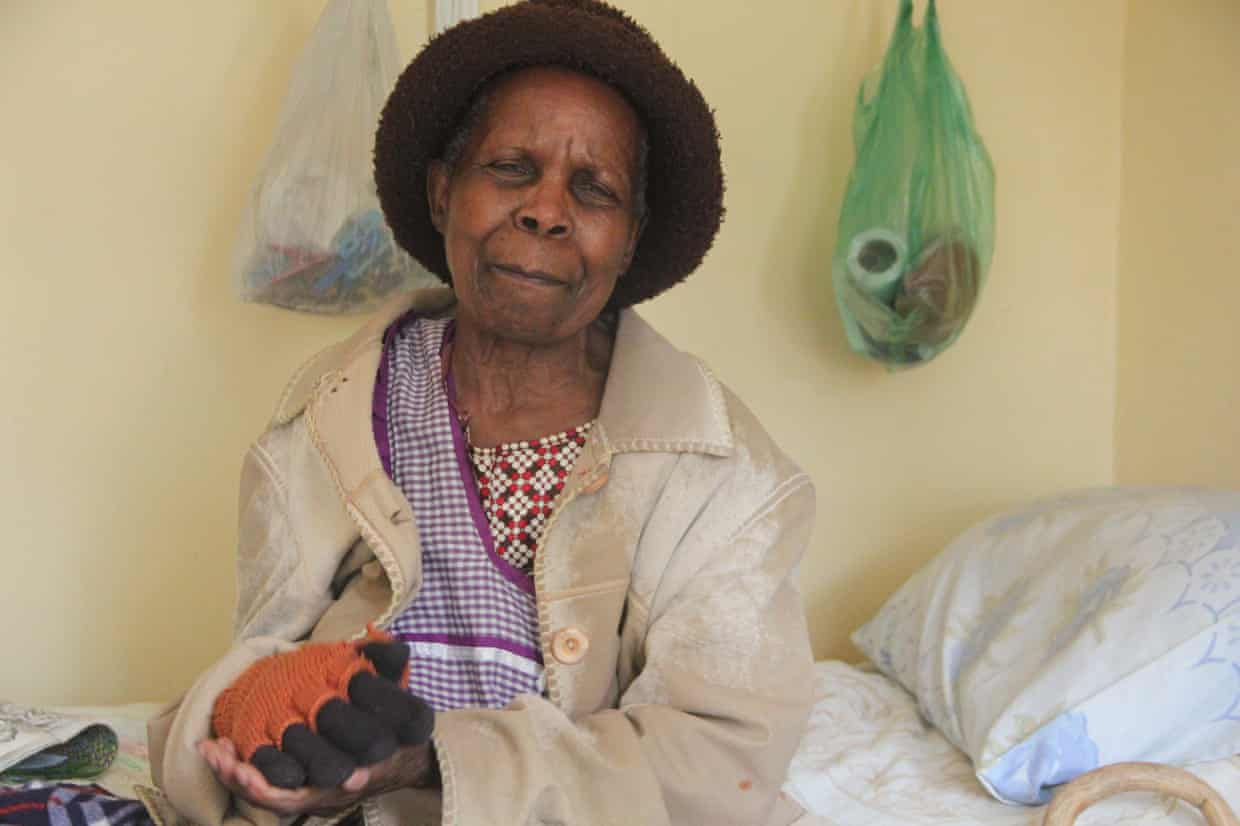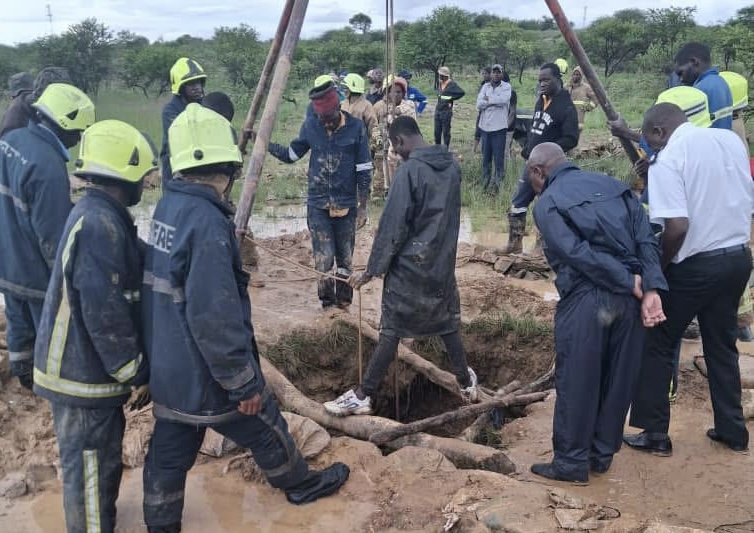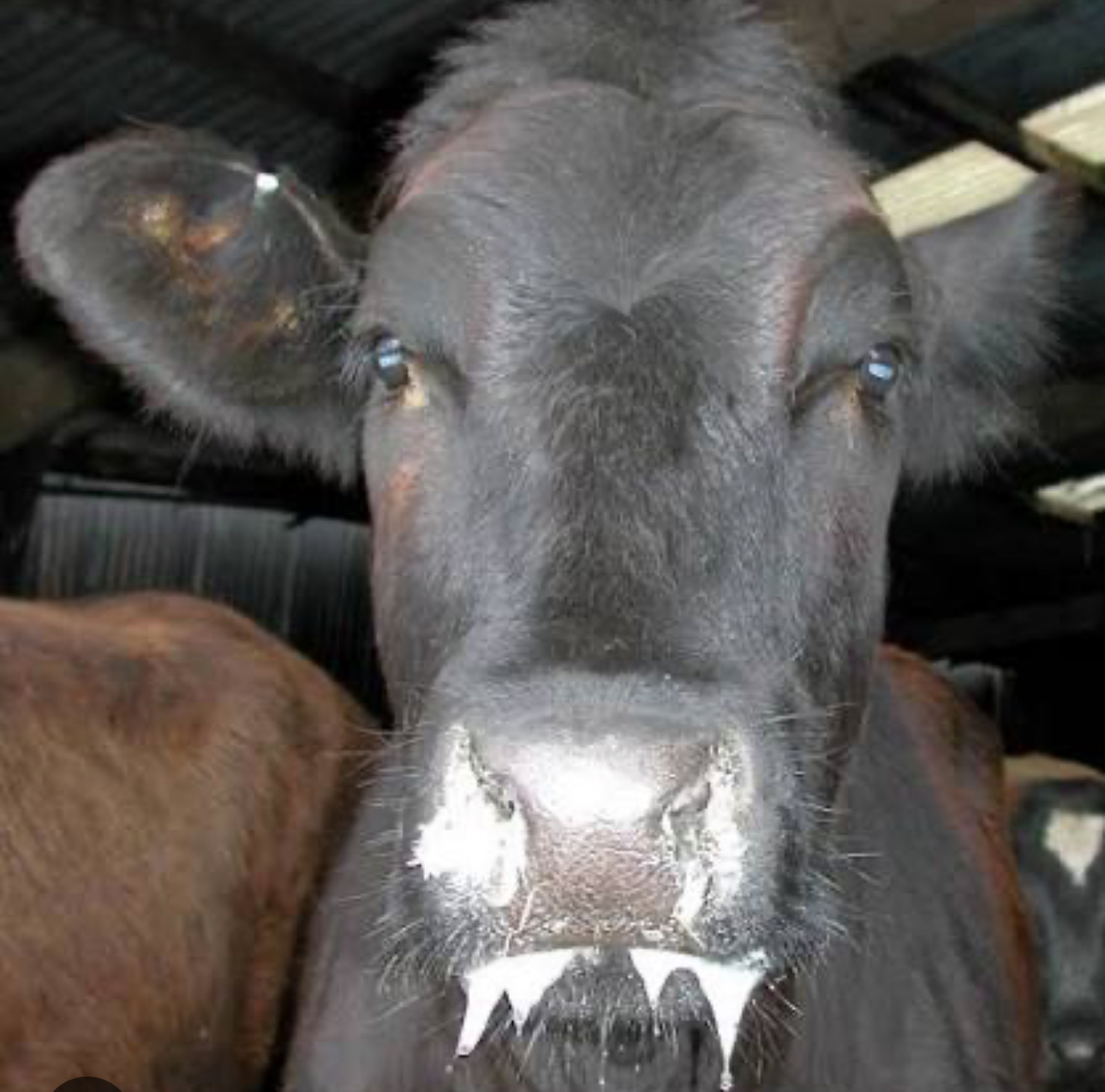BY NYASHA CHINGON0
Lunch is Angelica Chibiku’s favourite time.At 12pm she sits on her neatly made bed waiting for her meal at the Society of the Destitute Aged (Soda) home for older people in Highfield, a township in south-west Harare.
Chibiku welcomes a helper into her room and cracks a few jokes. She loves to interact with those who bring her food and supplies.
Chibiku is paralysed on her left side, and for most of the day she is alone in her room.
“I suffered a stroke years ago, and I was worried about how I was going to survive, then ended up here. My health is worse, especially when it’s very cold,” says Chibiku.
Chibiku is always lonely. Her vulnerability to Covid prevents her from going outside often and her children seldom visit.
“I do not have any grandchildren and my children come to see me sometimes.
“I am always depressed because I don’t have anyone to see me. I used to do exercises, but now I cannot do that any more.
“I just spend my day sitting,” says Chibiku.
Chibiku misses talking to her friends.
“My condition depresses me so much that I sometimes lose my mind. I am thankful that I am not on the streets,” she says.
Older people have become silent victims of the pandemic.
Zimbabwean communities used to pride themselves on looking after their ageing members, but poverty and high mortality rates among working-age men and women as well as unrelenting economic pressures on families have left older people isolated, poor and lonely.
While some have ended up sleeping rough, risking infection and starvation, the lucky ones like Chibiku are cared for in homes such as Soda.
Although it is often called “un-African” to send elderly people to institutions, the pandemic has led to a rise in demand for such facilities, says HelpAge Zimbabwe.
“Being in a pandemic is an emergency situation.
“Being in a pandemic, you find there are people who suffer and find themselves homeless and without food.
“Due to family friction, some elderly people find themselves on the streets,” says Priscilla Gavi, HelpAge executive director.
“Some of the older people have been thrown out of their homes by their children, who request that they be taken into an institution,” she adds.
Gavi says a growing proportion of the country’s population of 15 million population are over 65, and fears this number will double over the next decade, increasing demand for care homes.
According to the Zimbabwe National Statistics Agency, 80% of elderly people live in abject poverty.
Bothwell Sundire, a development expert based in Masvingo, a city in south-east Zimbabwe, says care homes have experienced a 60 percent increase in admissions since the first Covid-19 case was reported in March 2020 and the country’s 170 facilities for older people are now saturated.
Domingo Zakani, 86 and Samson Edwin, 81, are watching television and reminiscing in a lounge at the Soda care home.
Zakani, who migrated to Zimbabwe in 1958 from Mozambique to work for a tobacco firm, is unmarried and has no children.
Finding him homeless and begging for food, a “good Samaritan” brought him to the home five years ago.
“I would like to go back home, but all my relatives are gone; no one knows me any more. I am just waiting for my day of death,” says Zakani.
Zakani, who has several ailments, including a knee problem, spends his day sitting in the courtyard or watching television.
His friends at the home also keep him company.
“I just sit all day. I cannot do much.
“This place is like a prison because I cannot move around any more. My relatives used to come, but not any more, so it is very lonely here,” he says.
Edwin migrated to Zimbabwe several years ago after getting a job, but his employer died, leaving him without work and stranded far from home. Edwin became destitute.
“I have been staying here for a year now. Before that, I stayed at Stoddart Hall in Mbare [a Harare township] because I had lost my job.
“ A stranger took me to this place and I am really grateful for his love.
“ I am glad that I never get sick. When I came from Malawi five years ago, I got a job in a white man’s shop that sells vehicle parts.
“I then lost my job,” Edwin said.
Edwin misses his children and desperately wants to go back home.
“I have tried to go back home, but I could not get money to travel.
“All my children are in Malawi. We write letters to each other and it has been long since I saw them,” says Edwin.
But Soda, like the older people it supports, has itself fallen on hard times.
Lack of funding and a lack of government programmes to aimed at supporting older people have affected the running of the facility – which was once visited by Diana, Princess of Wales – and its 16 residents eat only mealie-meal porridge, beans and vegetables.
“We have well-wishers who are gracious enough to help with food and other items and we also mobilise resources. Covid-19 has affected our resource mobilisation.
“We rely on the industry when they have enough to spare.
“It is hard to get support when the industry is depressed,” says director Emilia Mukaratirwa.
Mukaratirwa says the pandemic has forced the home to lock its gates, as elderly people are listed as vulnerable.
“It has been a love and hate relationship because they feel robbed of their freedoms.
“ The extension of the lockdown did not help matters. They cannot go out there, but some do understand that we have to protect them.
“We are lucky that we never had any positive cases,” says Mukaratirwa.
Older people saw their incomes and savings decimated by hyperinflation in 2008, face other pressures. Many are caring for orphaned relatives such as grandchildren. Gavi estimates more than 60% of orphans are cared for by older people.
Anyone 65 and older is entitled to free healthcare, but hospitals are depleted of supplies.
“We are advocating for a universal pension. We are advocating that every elderly person gets something at the end of every month to cater for their daily needs.
“Universal health insurance. We are saying that as long as we don’t address these issues, the burden on the economy will be bigger,” Gavi says.
She believes older people deserve to live in a loving environment.
“We cannot dump our older persons in institutions, saying they are now a spent force,” says Gavi. – The Guardian


 Slider3 years ago
Slider3 years ago
 National4 years ago
National4 years ago
 Tourism and Environment4 years ago
Tourism and Environment4 years ago
 Opinion4 years ago
Opinion4 years ago
 Special reports4 years ago
Special reports4 years ago
 National4 years ago
National4 years ago
 National3 years ago
National3 years ago
 National3 years ago
National3 years ago


